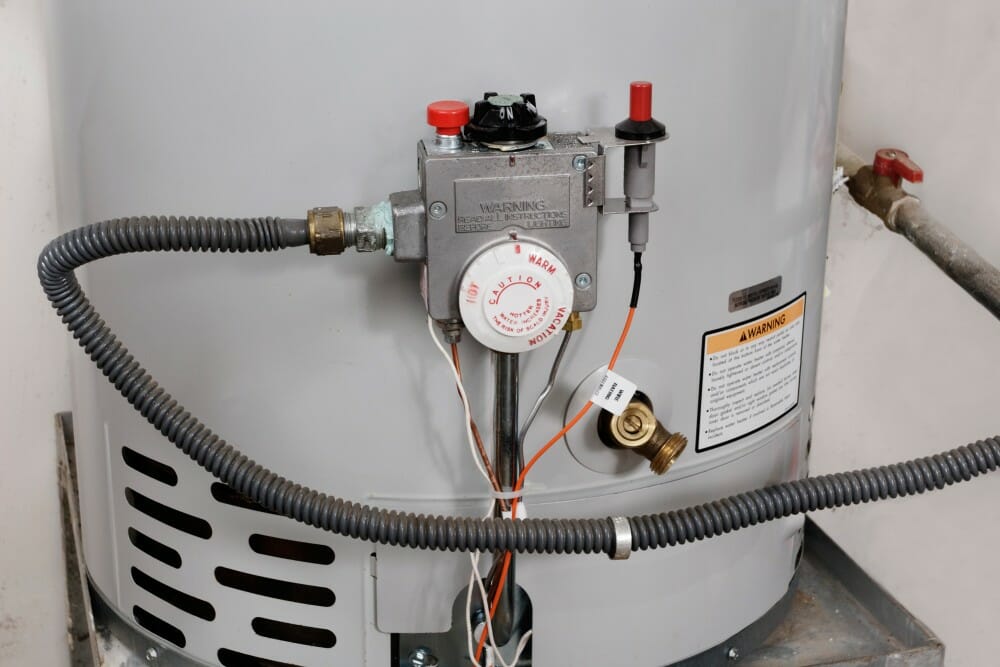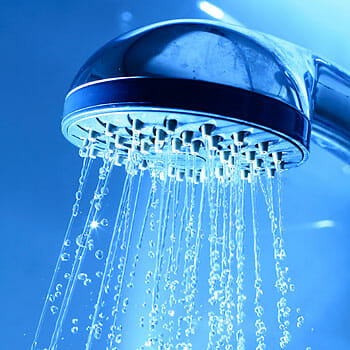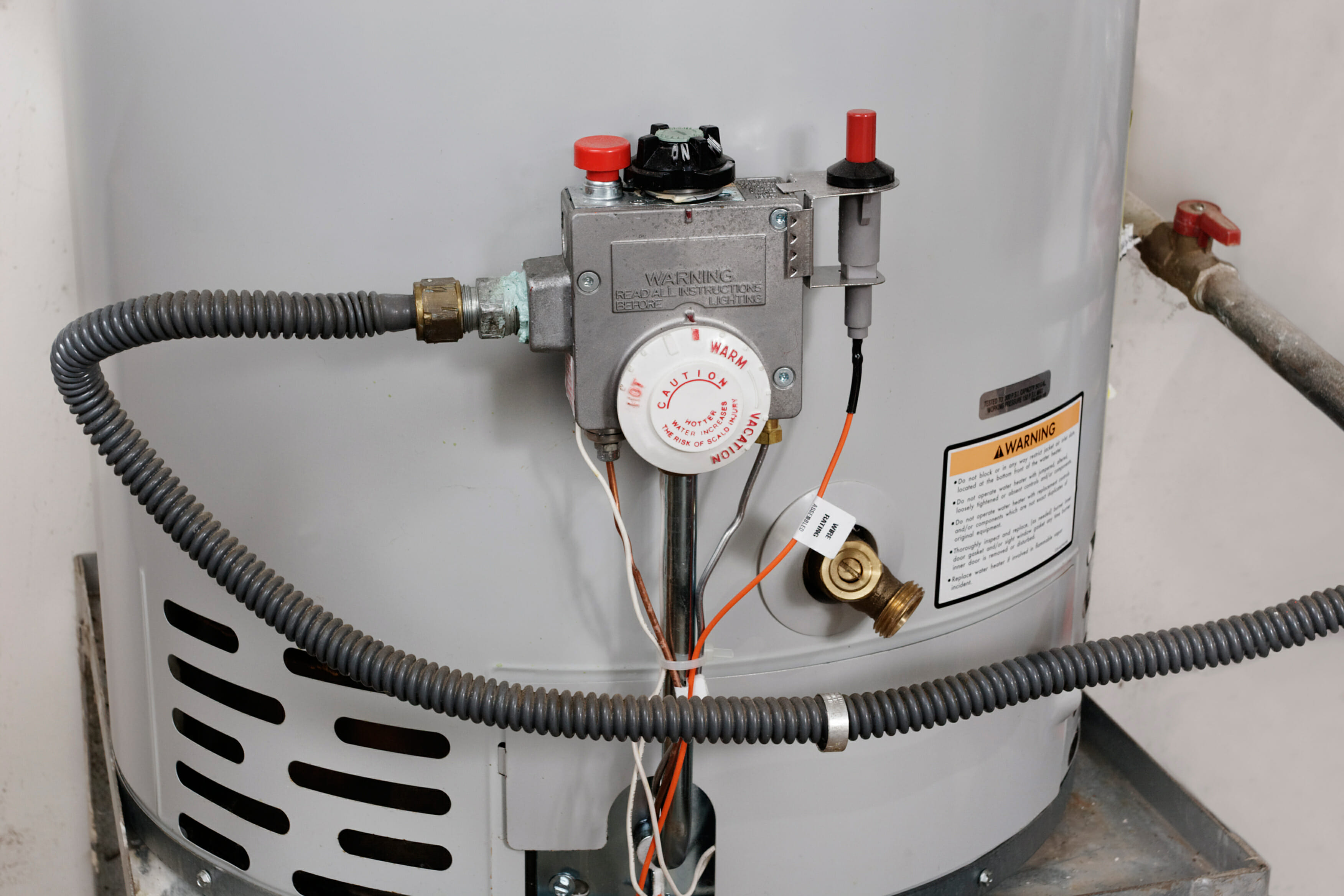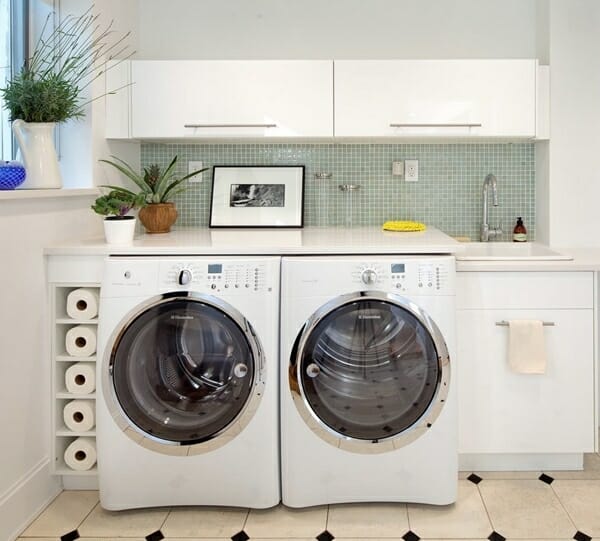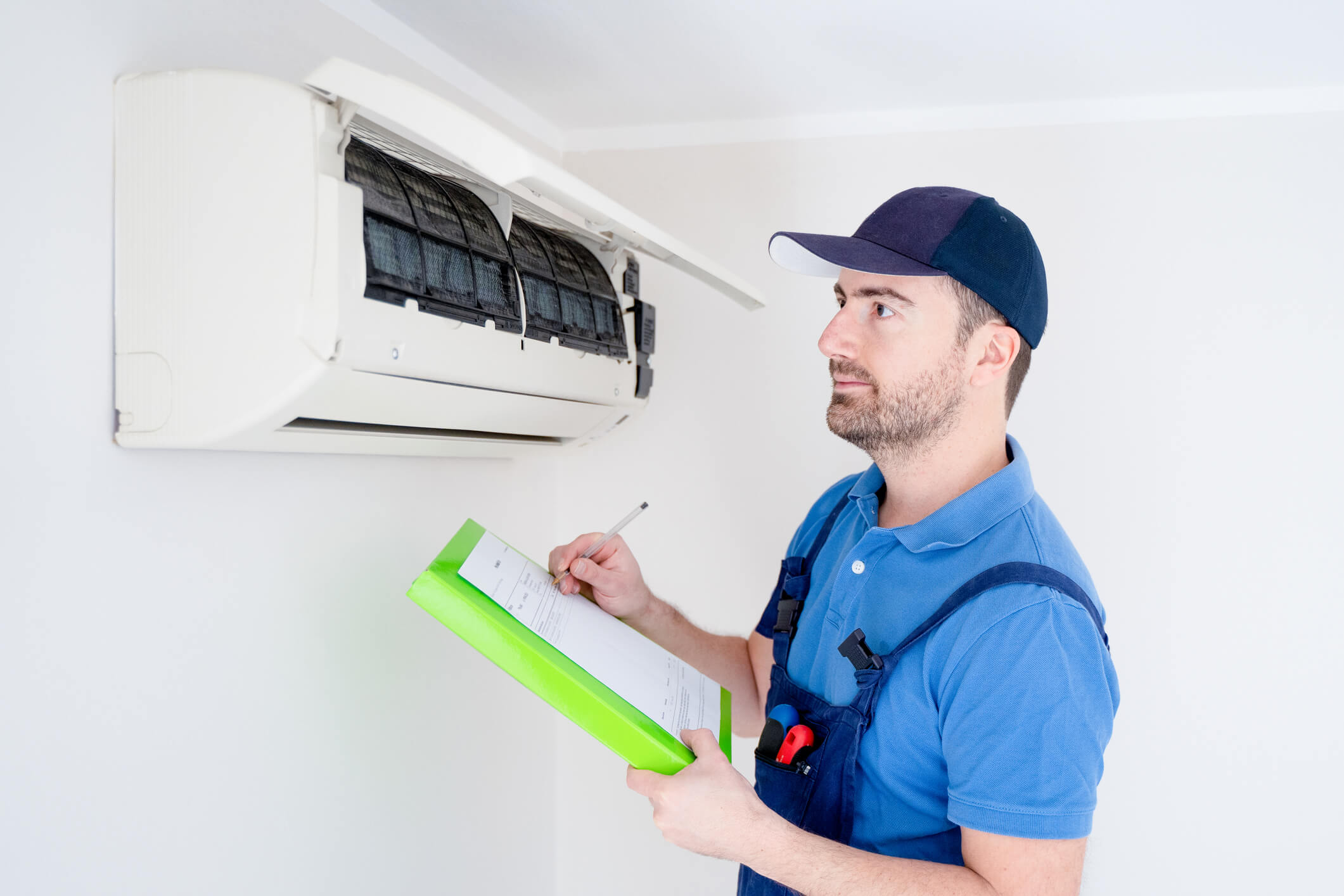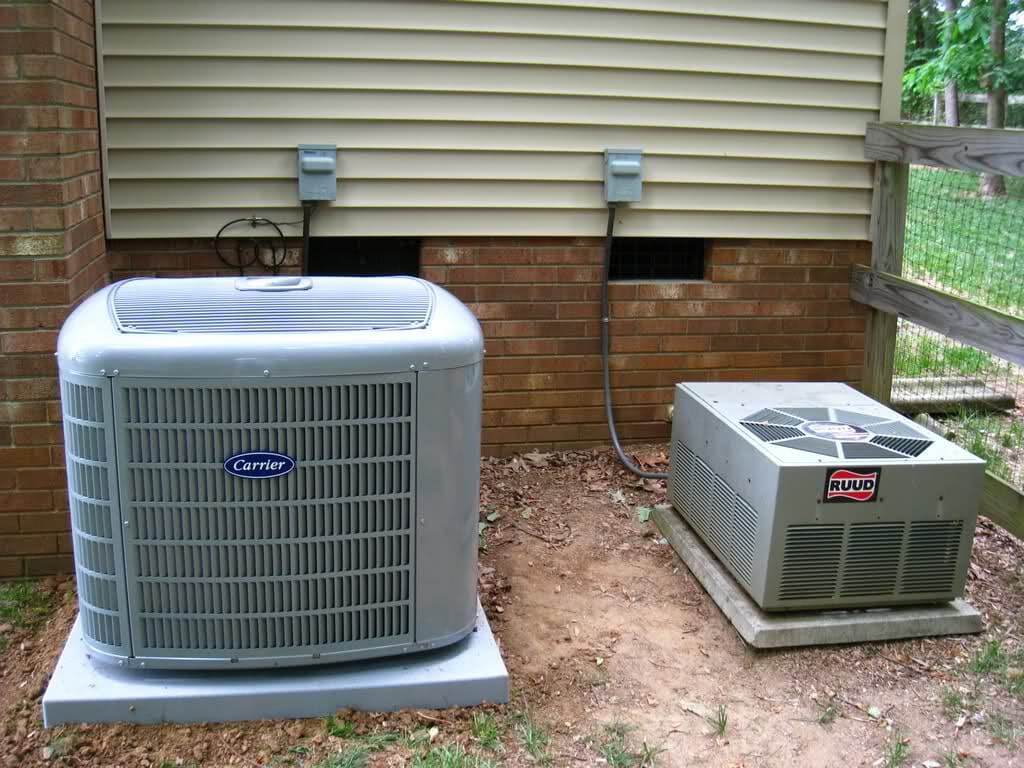Are you doing a plumbing project?
Modernize can pair you with three to four pros in your area, so you can compare options and save time and money.
How to Save on Water Heating Costs Without Sacrificing Comfort
Water heating is the second-largest energy-related expense in your home, but it doesn’t have to be a financial burden. With a few simple changes, you can reduce your energy bills and manage your water consumption — without forcing your family to take ultra-short showers.
Install Low-Flow Faucets and Showerheads
Low-flow faucets and showerheads use less water while maintaining pressure, so you won’t notice a difference in your shower experience. Look for the WaterSense label, which ensures efficiency, and check the gallons per minute (gpm) rating — the lower the number, the less water it uses. This simple upgrade can save both water and energy without sacrificing comfort.
Turn Down the Water Heater Thermostat
Most water heaters are set to 140°F by default, but 120°F is usually sufficient for both showers and dishwashing. Lowering your water heater’s temperature setting by just 20 degrees can reduce energy consumption and save you money without affecting daily tasks.
Wash With Cold Water
Heating water for laundry can account for 75% of the energy used in each load. Cold water is just as effective for most laundry loads and prevents stains from setting further. Use liquid detergent, which is designed to work better in cold water, and make the switch for both energy and cost savings.
Check for Leaks
A leaking faucet or hot water pipe can waste both water and the energy used to heat it. Regularly check faucets, pipes, and connections for leaks, and repair them promptly. A small drip can waste gallons of water over time, adding unnecessary costs to your energy bill.
Insulate Your Pipes
Insulating the first few feet of your hot water pipes helps maintain water temperature, allowing you to set your water heater to a more energy-efficient temperature. While a professional can do this, it’s an easy DIY task that can yield significant energy savings.
Find the Right Contractor for Your plumbing Project
Whether you’re ready to begin your project now or need some expert advice, our network of contractors are here to help. With a few simple questions, we’ll find the best local professionals for you
Replace Your Water Heater if Needed
Before replacing your water heater, ensure that it’s functioning efficiently. Sometimes, repairs or upgrades (such as adding insulation or a timer) can improve its performance without the cost of a full replacement. However, if it’s time for a new water heater, choose the right size and type for your home. Options include traditional tank heaters, tankless, solar, heat pump, and indirect systems. Research each option’s efficiency and operating cost to select the best fit.
Buy Energy Star-Certified Appliances
When it’s time to replace older appliances, choose ENERGY STAR® certified models for better energy and water efficiency. If your dishwasher or washer is still in good condition but old, maintain it well to ensure optimal performance. But if your appliances are nearing the end of their life, ENERGY STAR products use the latest technology to help you save energy.
Cut Down on Water Use
In addition to upgrades, simple daily habits can save a surprising amount of energy and water. Turn off the tap while brushing your teeth, take shorter showers, and always wash full loads of laundry. Small changes in your routine can have a big impact on your utility bills.
By making small adjustments to your water heating habits and upgrading key fixtures, you can reduce energy consumption and lower your water heating costs. Whether you’re installing low-flow devices, lowering your water heater temperature, or simply changing habits, you can save money without sacrificing comfort. What steps have you taken to save on energy costs in your home? Share your tips in the comments below!
Find the Right Contractor for Your plumbing Project
Whether you’re ready to begin your project now or need some expert advice, our network of contractors are here to help. With a few simple questions, we’ll find the best local professionals for you
Reviews from Real Homeowners
Welcome to Homeowner Resources! We are the Modernize blog. Modernize pairs more than 3 million homeowners a year with pre-vetted contractors in their area. This blog started because we believe homeowners should know everything about their homes, from how their HVAC works to which front door colors they might love. On Homeowner Resources, you can find information on every part of your home, right down to how you can negotiate with contractors to get the best price. Here's more about the blog.
Need a contractor? Learn more about how Modernize finds the right pro for you.
